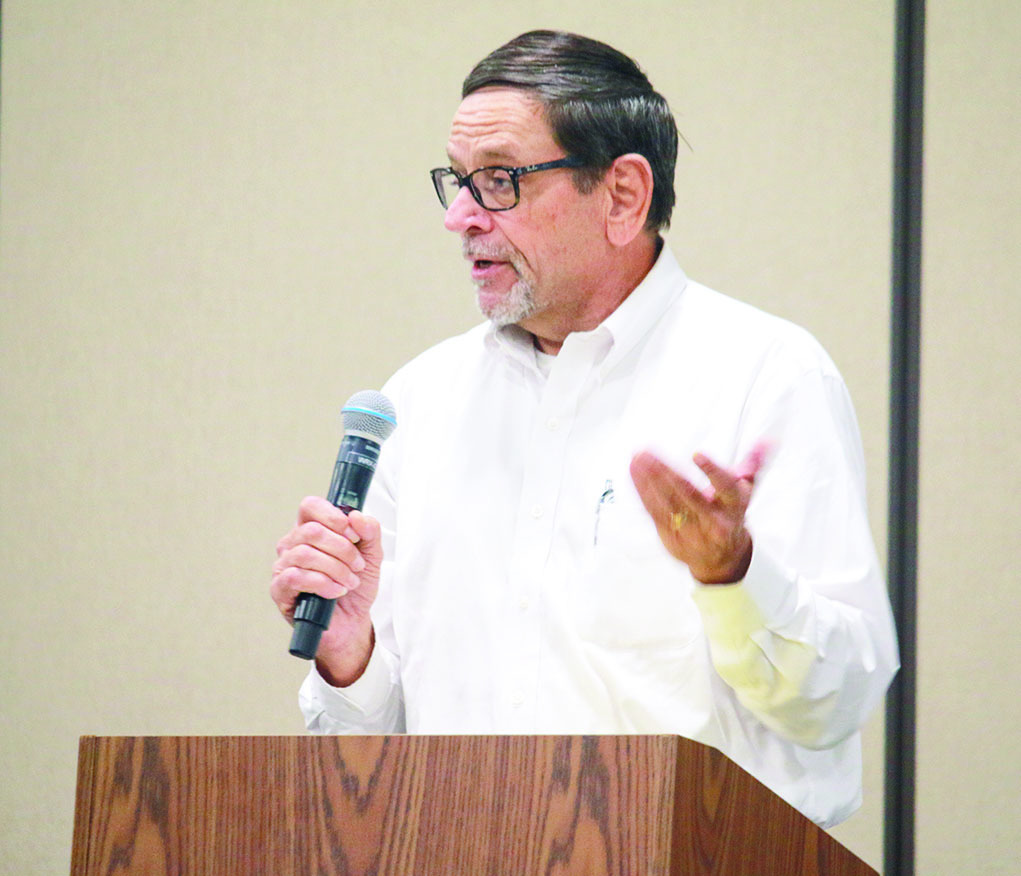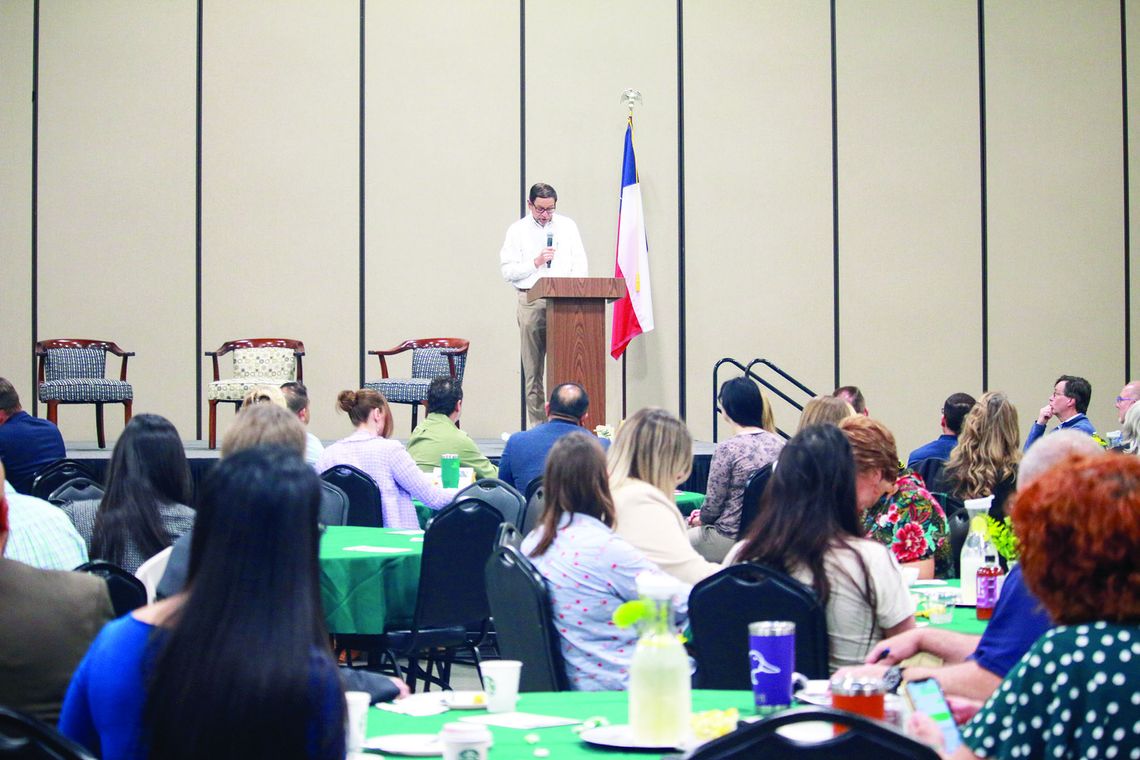Expert says U.S. 79 work just starting
Some small towns that have been sitting back and watching their larger neighbors deal with – and benefit from – intensive development along U.S. 79 should be taking notes, according to economic development expert Dave Porter.
“How do we prepare Thrall, Milam County, and all the way to College Station, how do we prepare them for what you’re experiencing here right now today?” Porter, executive director of the Williamson County Economic Development Partnership told a packed audience at the Taylor Chamber of Commerce Gear Up For Growth Symposium.

Dave Porter speaks to a diverse audience of community leaders at the chamber growth summit.
Being ready for opportunities and challenges coming to this region was the theme of speakers and panelists at Tuesday’s chamber event. Topics ranged from welcoming newcomers to preparing a
workforce. Porter told the audience that companies from Korea have already leased buildings east of Taylor heading toward Thrall and that development is continuing to spread east with the recent announcement of a potential 50 million square foot manufacturing campus in Rockdale. He also said that Samsung Austin Semiconductor has identified more than 100 Korean companies that support or serve their fabrication processes which will eventually need to establish locations within one hour of the Taylor plant.
“U.S. 79 begins in Round Rock and goes 1,100 miles to Tennessee but the stretch between Round Rock and College Station is quickly becoming a manufacturing innovation corridor. This whole corridor is going to continue to develop, going to continue to attract companies,” he said.
People follow jobs, and Porter said more than 4,000 people a month move to Williamson County.
“As of 2021, the majority of our workforce stays in Williamson County. So, now we are no longer a bedroom community to Austin. We are now becoming a center of employment,” he said.
That shift in status brings challenges to people who work in surrounding areas. Don Watkins is the business development director for Cadence McShane Construction and works on projects throughout Texas. He attended the symposium to hear about business opportunities and evaluate potential workforce shortages.
“The growth here is dragging qualified workers in. Contractors we work with are coming out here so they may not be available to come do projects with us elsewhere. All this work going on out here affects the whole region,” Watkins said.
Porter said that 90% of the workforce international companies like Samsung will hire will be local workers, and that the types of jobs offered should allow people to live in the community they work in.
“Manufacturing is tied to the middle class and we need to re-establish the middle class. The average manufacturing wage in Williamson County is $100,000. That’s a good wage,” he said.
During the pandemic, the country suffered from supply chain shortages brought about in large part because so much of what America needs is being produced overseas, according to experts.
“Over the many decades of me doing this I’ve watched manufacturing leave this country in droves,” Porter said. “About 90% of the projects we’re working with Williamson County Economic Development Partnership are in manufacturing.”
Chamber President and CEO Tia Rae Stone expanded on the need to bring manufacturing back to the U.S.
“If you care about that flag and this democracy, then you care about bringing semiconductor manufacturing back to this country,” Stone said. “It’s all about national security. It’s also about opportunity, but if you can’t love it or respect it for any other reason ... you’ve gotta love it for that.”
“
As of 2021, the majority of our workforce stays in Williamson County. So, now we are no longer a bedroom community to Austin. We are now becoming a center of employment,.”
-Dave Porter, economic development expert





